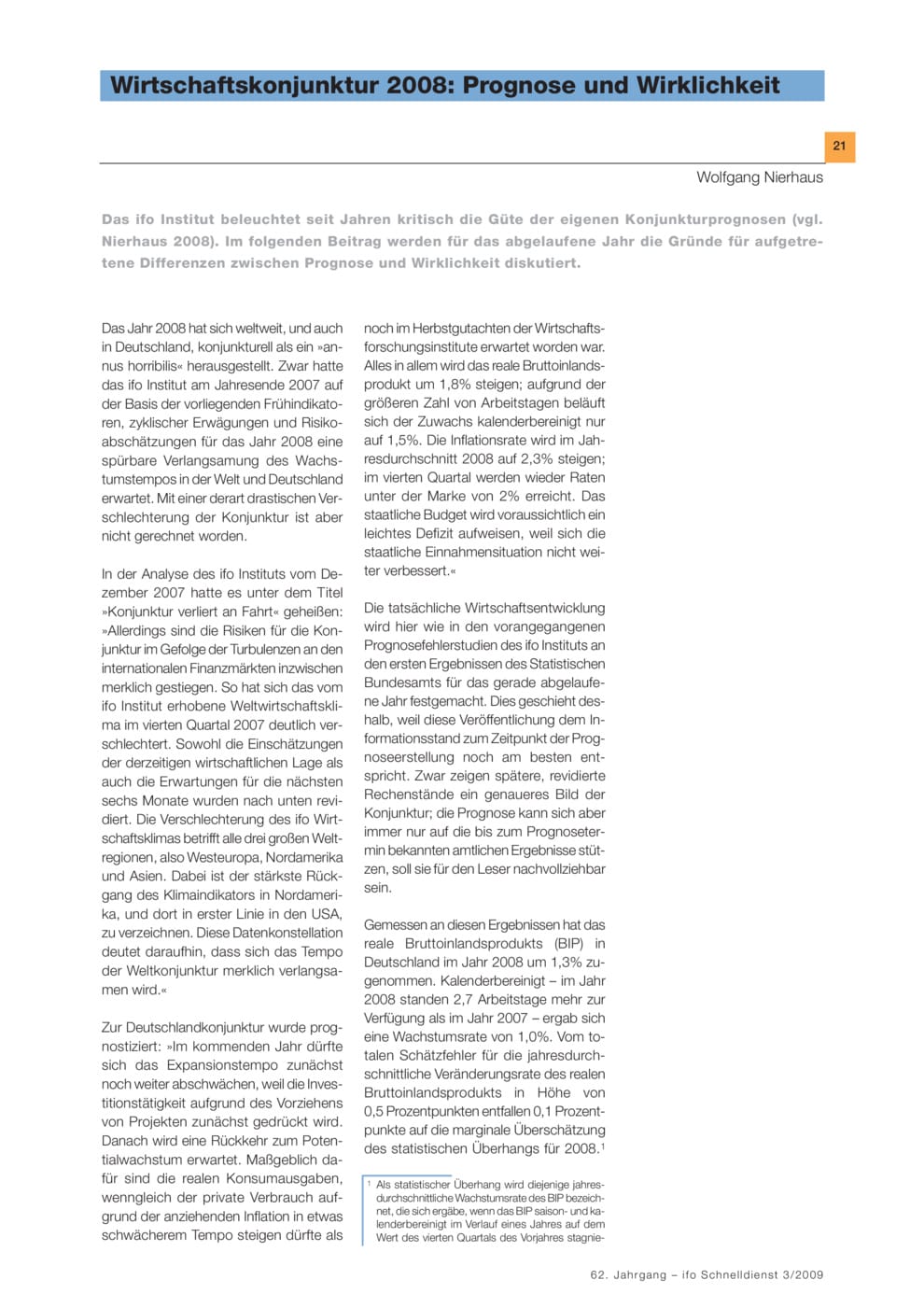Economic activity 2008: Forecasting and reality
ifo Institut für Wirtschaftsforschung, München, 2009
ifo Schnelldienst, 2009, 62, Nr. 03, 21-25

For years the Ifo Institute has examined the quality of its own economic forecasts and has discussed the reasons for the differences between forecasting and reality. Economically, 2008 turned out to be an annus horribilis both in Germany and in the world. At the end of 2007 the Ifo Institute had indeed expected a perceptible slowdown in the growth pace in Germany and the world on the basis of leading indicators, cyclical considerations and risk estimates for 2008. Such a drastic worsening in economic activity as what occurred was not anticipated, however. Of the total estimation error of 0.5 percentage points for the average growth rate in GDP, 0.1 percentage points was due to a marginal overestimation of the statistical overhang for 2008. This, according to the official statistics, amounted to 0.6%; in the December Ifo forecast we anticipated an overhang of 0.7%. The remaining forecasting error (0.4 percentage points) is attributable to strong cyclical changes. In the first half of 2008 economic output expanded, with some fluctuations, at an even stronger pace than expected by the Ifo Institute. Since early summer 2008, economic activity in Germany turned downwards, however, as the worsening of the external economic environment (appreciation of the euro, rise in crude oil prices, recessions in the US and Japan) came more and more to the fore. In September the world financial crisis reached a dramatic climax. Real GDP started to fall in the third quarter; in the fourth quarter there was a massive decline in value added and production. The German economy went into recession.